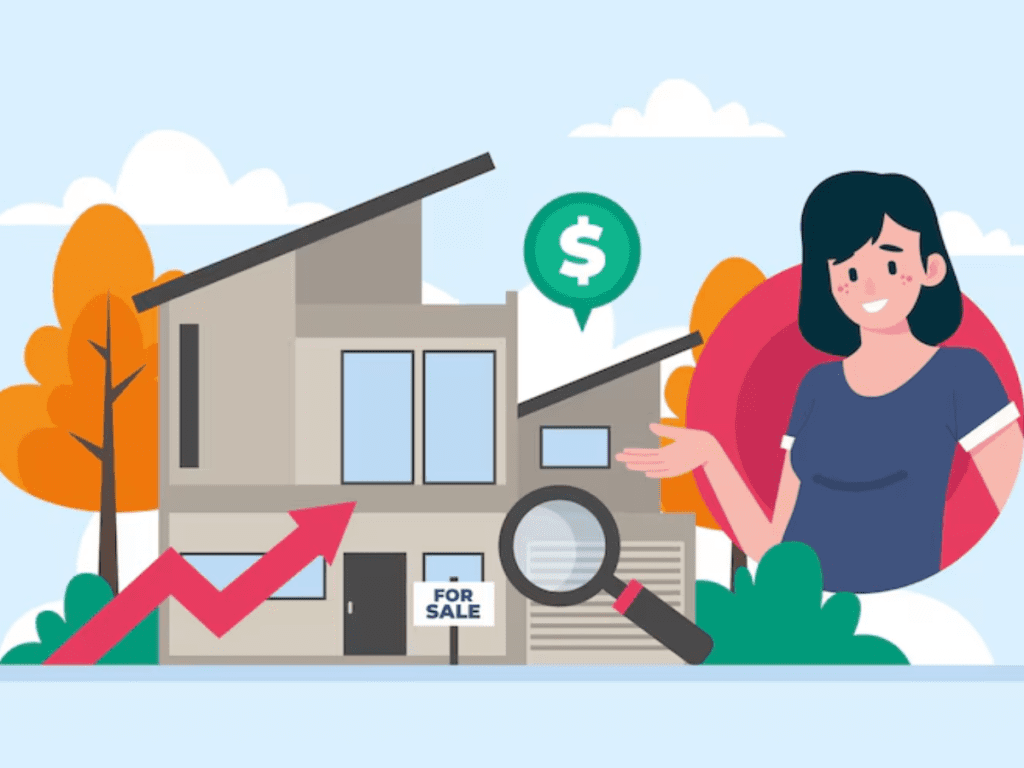Introduction
Securing a mortgage is one of the most significant financial commitments you’ll make in your lifetime, and getting approved for one can be a daunting process. Whether you’re a first-time homeowner or refinancing an existing loan, the economy is a determinant of whether you’ll be in a position to qualify for attractive mortgage rates. With lenders checking so many angles of your finance, planning months in advance may be what places you ahead. Ideally, if you plan ahead 12 months before making your target home purchase or refinance, you stand a higher chance of approval and can also get a better mortgage rate. The more you plan ahead, the stronger your financial record will look to prospective lenders. Follow the detailed guide below to plan your finances 12 months in advance to improve your chances of mortgage approval.
Evaluate Your Credit Score and Take Action to Improve It
Your credit score is one of the primary factors that lenders consider when determining whether or not to approve you for a mortgage. It also heavily influences the interest rate you’ll receive, which can have long-term financial implications. Higher credit scores generally result in lower interest rates, meaning you’ll pay less in interest over the life of your loan. On the other hand, lower credit scores may result in higher interest rates or even outright denials.
The first step is to understand your existing credit score. You are entitled to receive a free credit report from each of the three major credit bureaus—Equifax, Experian, and TransUnion. Spend time going through your credit report thoroughly to look for any errors or errors that may be bringing your score down. If you find errors, make sure to dispute them right away to rectify the record.
Once you’ve reviewed your credit report, it’s time to work on improving your credit score. A good rule of thumb is to begin this process at least 12 months in advance of applying for a mortgage. To boost your credit score, follow these key actions:
- Pay Bills On Time: Payment history on time contributes to a significant percentage of your credit score. Automate payments or schedule reminders for payment due dates to prevent late payments.
- Pay Off Debt: Attempt to pay off outstanding debts, especially high-interest credit card debt, to decrease your credit utilization ratio. Your credit utilization ratio (the percentage of available credit you’re using) is a determining factor in your score. Paying down outstanding balances will have a positive effect immediately.
- Don’t Open New Credit Accounts: Every credit application will trigger a hard inquiry that will impact your score temporarily. Steer clear of new credit card accounts or personal loans prior to your mortgage application.
- Have a Good Credit Mix: A varied mix of credit, like a balance of credit cards, auto loans, and installment loans, may be good. But only carry credit that you can handle in a responsible way.
Save for a Down Payment Early
The down payment is a major determinant of obtaining a mortgage, and the amount of your down payment can have a major impact on both your chances of approval and the terms of your loan. The more you can put down initially, the less you’ll have to borrow, which ultimately lowers your risk to the lender. Generally, the bigger your down payment, the better your mortgage rate might be.
Conventional loans typically require a 20% down payment, but there are some loans, such as FHA or USDA loans, that require a smaller down payment. Still, even with these loan options, a larger down payment can make a big difference. Saving for a down payment should be one of your primary financial goals 12 months before applying for a mortgage. Here’s how to begin:
- Make a Savings Plan: Define a specific target for how much you must save each month to achieve your goal down payment. Divide the goal into monthly targets to make it simpler to monitor.
- Open a Dedicated Savings Account: Open a dedicated account for your down payment savings to segregate the money from your regular expenses. You can use a high-yield savings account to earn interest on the money you are saving.
- Cut Unnecessary Expenses: Review your budget to identify areas where you can cut spending. Refrain from making large purchases or luxury items during the 12-month preparation period.
- Take into Account Windfalls and Bonuses: If you get a tax refund, annual bonus, or other financial windfalls not anticipated in your budget, put these monies directly into your down payment fund.
Strive to Lessen and Eliminate Debt
Your debt-to-income ratio (DTI) is yet another critical element that lenders check when considering your mortgage application. Your DTI is the percentage of your income that you spend on paying current debts. A lower DTI means that you have more money left over for making mortgage payments, and you become a better borrower. Paying off outstanding debts is a good way to enhance your DTI and enhance your mortgage qualification.
In order to work towards reducing your DTI, put your efforts in paying off the high-interest debt, especially on credit card bills. Try paying off current loans like student loans, car loans, or personal loans. Take the following steps:
- Pay Off High-Interest Debt: Start paying off the high-interest debts first because these will be the most expensive. When you have cleared them, then you can reduce other forms of debt.
- Don’t Take on New Debt: Throughout your 12-month preparation period, avoid taking on new loans or new debt. New debt will only boost your DTI and make you a less desirable candidate to lenders.
- Debt Consolidation: If you have more than one debt, consolidating your debts into a single payment with a lower interest rate might help you keep up with payments and pay off your debt faster overall.
Set Up an Emergency Fund
An emergency fund is essential when it comes to obtaining a mortgage. Lenders need to know that you will be able to absorb unexpected costs, like hospital bills or loss of a job, without risking your ability to make mortgage payments on time. A strong emergency fund can assure lenders that you are financially stable and ready for those unexpected surprises.
Ideally, three to six months of living costs should be saved in your emergency fund. Creating the fund must start early. Following are some tips for constructing a sound financial safety net:
- Identify a Goal: Calculate how much you have to save for your emergency fund. Three months of living costs is a good place to start, but six months is usually advisable.
- Automate Your Savings: Arrange to have automatic deposits from your checking account to your emergency fund. This way, you are constantly saving towards your goal.
- Cut Back on Non-Essential Spending: Look around for places where you can cut back on discretionary spending, such as eating out or entertainment, and channel these savings into your emergency fund.
Gather All Necessary Documentation
A mortgage loan application takes all sorts of documentation to confirm your income, assets, and personal details. To prevent processing delays, have all the documents ready well in advance. Some of the most common documents you will need are:
- Proof of Income: Lenders will generally ask for two months’ worth of pay stubs, two years’ worth of W-2 statements, and any other proof of other income (e.g., bonuses, alimony, child support).
- Proof of Assets: They will want to know where the down payment and closing costs come from. Bank statements, balance statements on your retirement accounts, and other proofs of assets might be required.
- Personal Identification: A government-issued identification (i.e., passport or driver’s license) and your Social Security number should be handy.
- Tax Returns: Lenders usually ask for your tax returns from the last two years to check your history of income.
By getting them ready and keeping them in order beforehand, you’ll be in a position to apply for a mortgage promptly and without undue delay.
Avoid Major Financial Changes
For the 12 months immediately prior to applying for a mortgage, it is essential to keep your finances unchanged. Below are some fiscal steps that may sabotage your application:
- Job Changes: Lenders like candidates who have settled and stable employment. Refrain from job or career changes in these 12 months. If you really need to change jobs, make sure that you have a good employment record in your new position.
- Large Purchases: Big purchases like a new car or a personal loan can adversely affect your credit score and debt-to-income ratio. Try not to make such purchases while preparing the mortgage.
- Opening or Closing Credit Accounts: Opening a new credit account decreases your credit score, and closing an existing one reduces available credit, both of which negatively affect your prospects of approval.
Research Different Mortgage Options
Knowing what types of mortgage loans you qualify for is essential when getting ready to make an application. Each type of loan requires different things and offers varying benefits. Popular choices for mortgages are:
- Conventional Loans: These are the most popular form of mortgage and generally need a 20% down payment. If you do not have a big down payment, private mortgage insurance (PMI) can be needed.
- FHA Loans: FHA-backed loans are a popular choice for first-time buyers or those with inferior credit. They often call for a lower down payment.
- VA Loans: Offered to the military and their families, VA loans have no down payment requirement and offer great terms.
- USDA Loans: USDA loans for homebuyers in rural areas often have no down payment.
Knowing what options are available to you will assist you in selecting the most suitable loan product for your current circumstances and future objectives.
Speak with a Mortgage Expert
Ultimately, perhaps the most crucial step in getting ready for a mortgage is talking with a mortgage broker or financial planner. These individuals can guide you through the intricacies of the mortgage process and offer customized recommendations for enhancing your financial profile. They can also assist you in figuring out how much you can afford to borrow, based on your income, debts, and other financial considerations. A mortgage professional can point you in the direction of the appropriate loan for your situation and introduce you to lenders with the best terms.
Conclusion
Obtaining a mortgage entails far more than simply completing an application. By getting your finances in order 12 months before you need a mortgage, you can stand a better chance of being approved and getting the best terms. From reviewing your credit score to saving up for a down payment, paying off debt, and establishing an emergency fund, the actions in this guide will make you a solid mortgage candidate. Being proactive, getting organized, and seeking professional advice can ensure that your mortgage approval process is as seamless as it can be.

